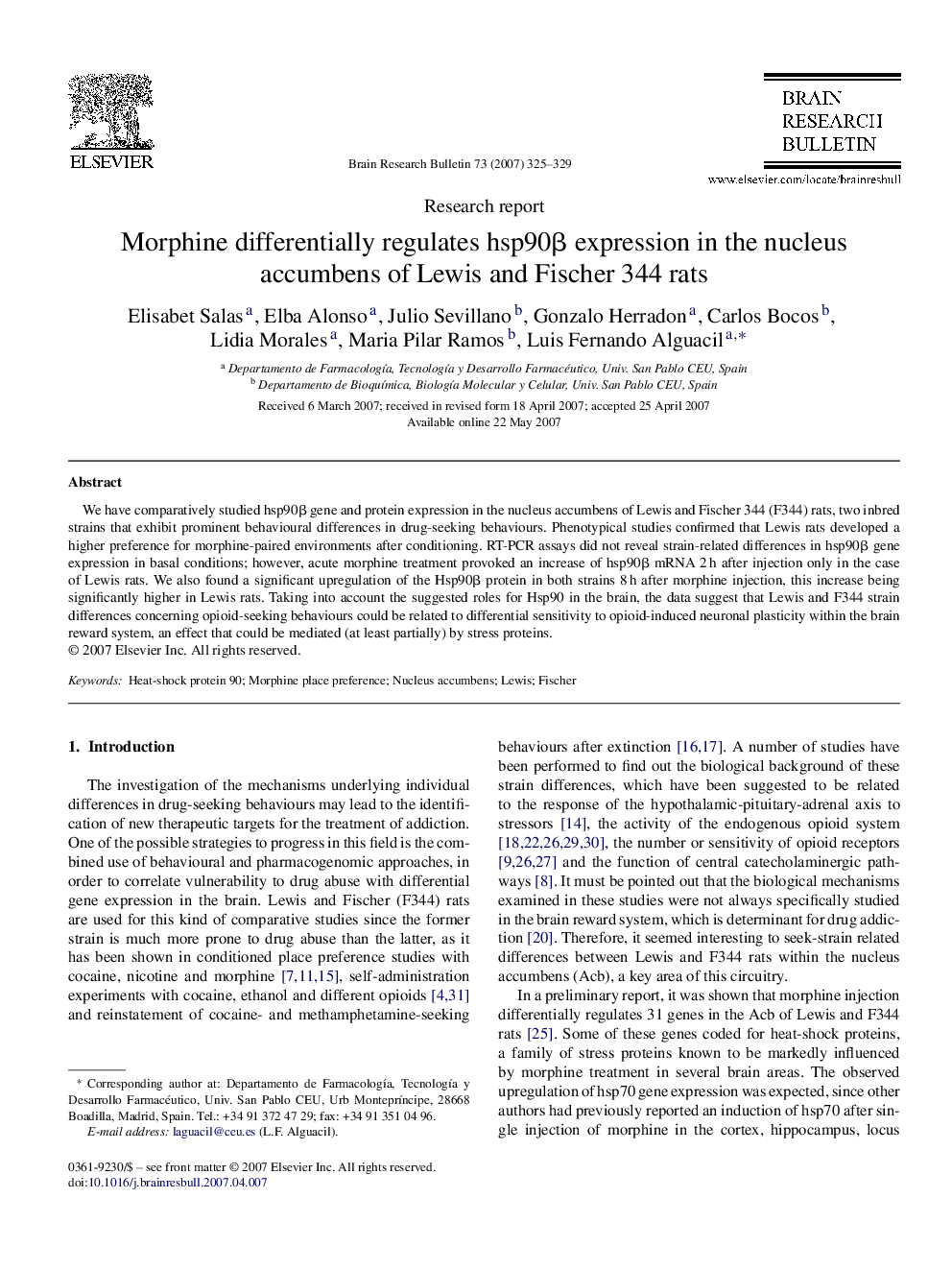| Article ID | Journal | Published Year | Pages | File Type |
|---|---|---|---|---|
| 4320182 | Brain Research Bulletin | 2007 | 5 Pages |
Abstract
We have comparatively studied hsp90β gene and protein expression in the nucleus accumbens of Lewis and Fischer 344 (F344) rats, two inbred strains that exhibit prominent behavioural differences in drug-seeking behaviours. Phenotypical studies confirmed that Lewis rats developed a higher preference for morphine-paired environments after conditioning. RT-PCR assays did not reveal strain-related differences in hsp90β gene expression in basal conditions; however, acute morphine treatment provoked an increase of hsp90β mRNA 2 h after injection only in the case of Lewis rats. We also found a significant upregulation of the Hsp90β protein in both strains 8 h after morphine injection, this increase being significantly higher in Lewis rats. Taking into account the suggested roles for Hsp90 in the brain, the data suggest that Lewis and F344 strain differences concerning opioid-seeking behaviours could be related to differential sensitivity to opioid-induced neuronal plasticity within the brain reward system, an effect that could be mediated (at least partially) by stress proteins.
Related Topics
Life Sciences
Neuroscience
Cellular and Molecular Neuroscience
Authors
Elisabet Salas, Elba Alonso, Julio Sevillano, Gonzalo Herradon, Carlos Bocos, Lidia Morales, Maria Pilar Ramos, Luis Fernando Alguacil,
